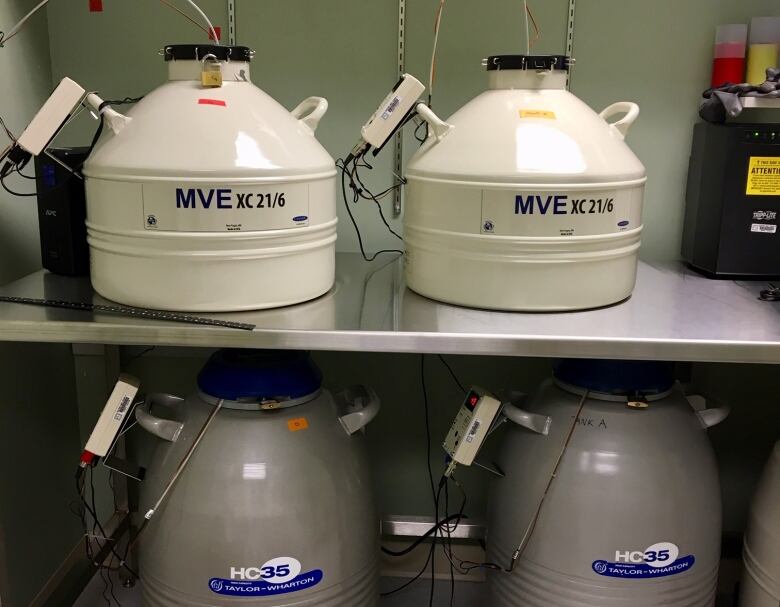Pandemic stops fertility treatments across Atlantic Canada
Atlantic Assisted Reproductive Therapies and Conceptia stop in-person treatments

Atlantic Canada's two fertility clinics have stopped all in-person treatments because of the COVID-19 pandemic.
Atlantic Assisted Reproductive Therapies in Halifax and Conceptia in Moncton, N.B., say they have no idea how long it will be before they're back up and running.
"It was devastating for our patients as well as us," said Julie Keizer, CEO of the Halifax non-profit clinic. "We had some tough phone calls to make to people who are in active treatment."
Keizer estimates just over 30 families from across the region were in active treatment. The clinic also helps patients from Prince Edward Island and Newfoundland and Labrador — provinces that don't have fertility clinics that offer in vitro fertilization services
"We are required to comply with what public health has told us to do," Keizer said. "When we restart, those patients will be our first priority to treat."
In a news release, the Conceptia clinic said it is temporarily transferring staff and nurses to the regional health authorities.
Both clinics said staff will continue to monitor the cryotanks that store frozen embryos, eggs and sperm.
"This is a very difficult period and we are disappointed that we have to suspend this very important service to families," Dr. Rodney Ouelette said in a statement on Conceptia's website.
"In the meantime, our talented staff of nurses and receptionists may be able to help our health system deal with this pandemic."
At Atlantic Assisted Reproductive Therapies, Keizer said they're trying to make the most of a tough situation. The physicians at the clinic are now working their way through the long wait-list, hosting virtual appointments.
Dr. Mike Ripley, a reproductive endocrinologist, said he's sending out requisitions for tests so the clinic's patients will be ready to move forward as soon as blood clinics reopen to non-urgent cases.
"Patients have just been happy that we're continuing on and trying to see them in any manner, rather than just cancelling everything at this point," he said.

While some patients have concerns that a delay of several months could affect their success rate, Ripley said he's trying to reassure them.
"Overall, for the average patient, delaying your fertility investigations or treatment by a couple of months does not make a significant difference in what a patient's prognosis is," he said.
"Obviously, there may be some exceptions to that statement but overall I don't think a two, three, four-month delay in a patient being treated is going to make a notable difference in their outcome."
Keizer said they'll book patients to return to the clinic as soon as it's safe to do so.
"This is what the life's work of most of our staff is — to offer fertility treatments to those who need it — so we're feeling very eager to get back to this and very eager to help people."

